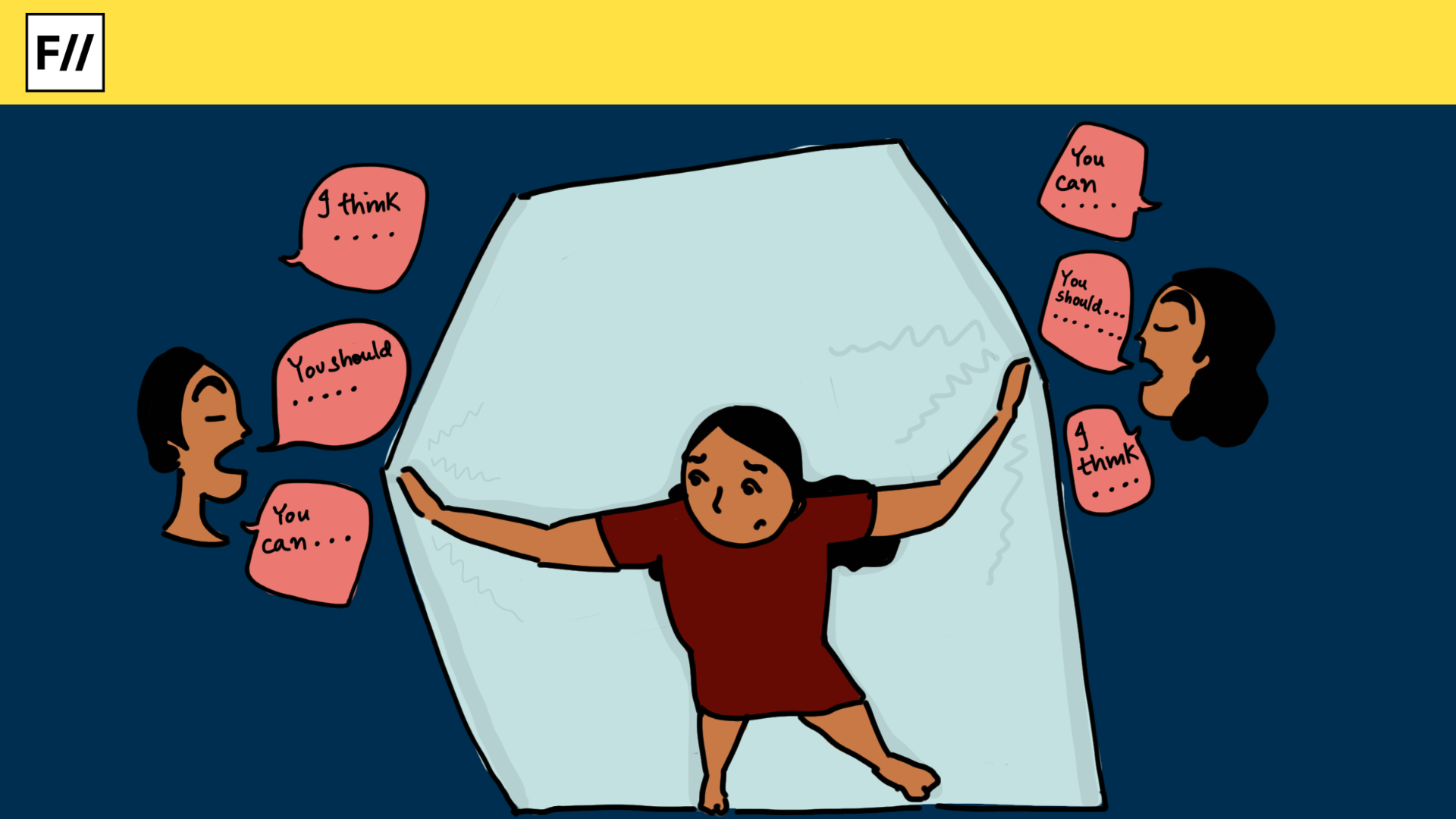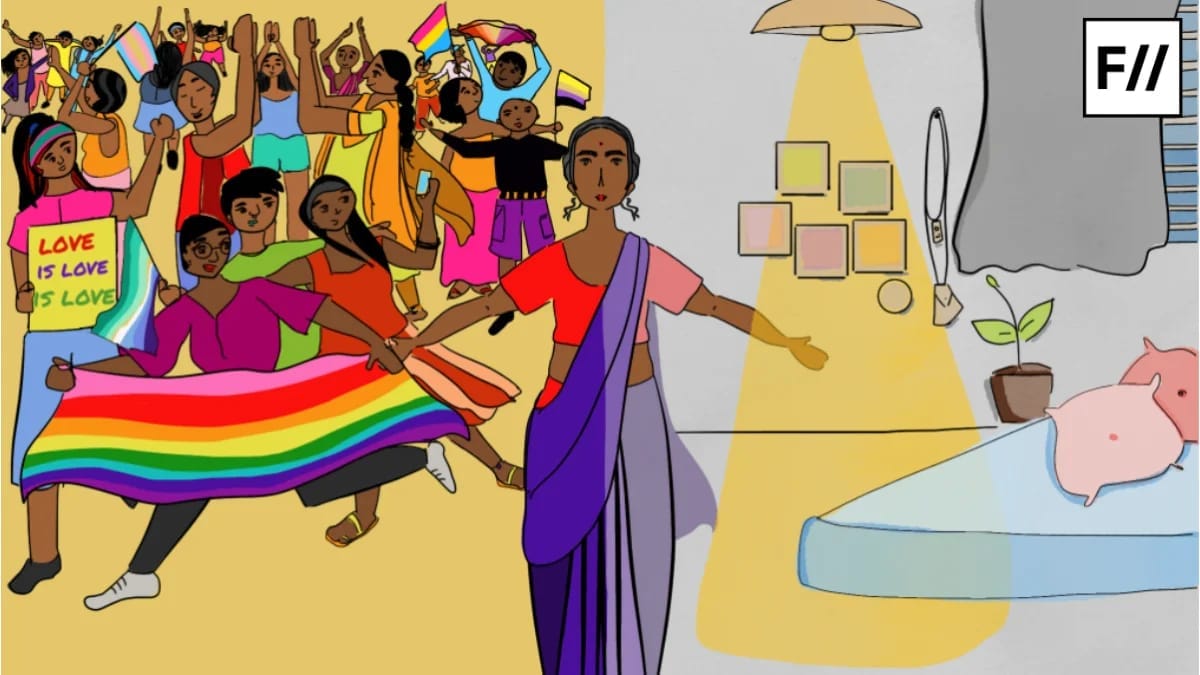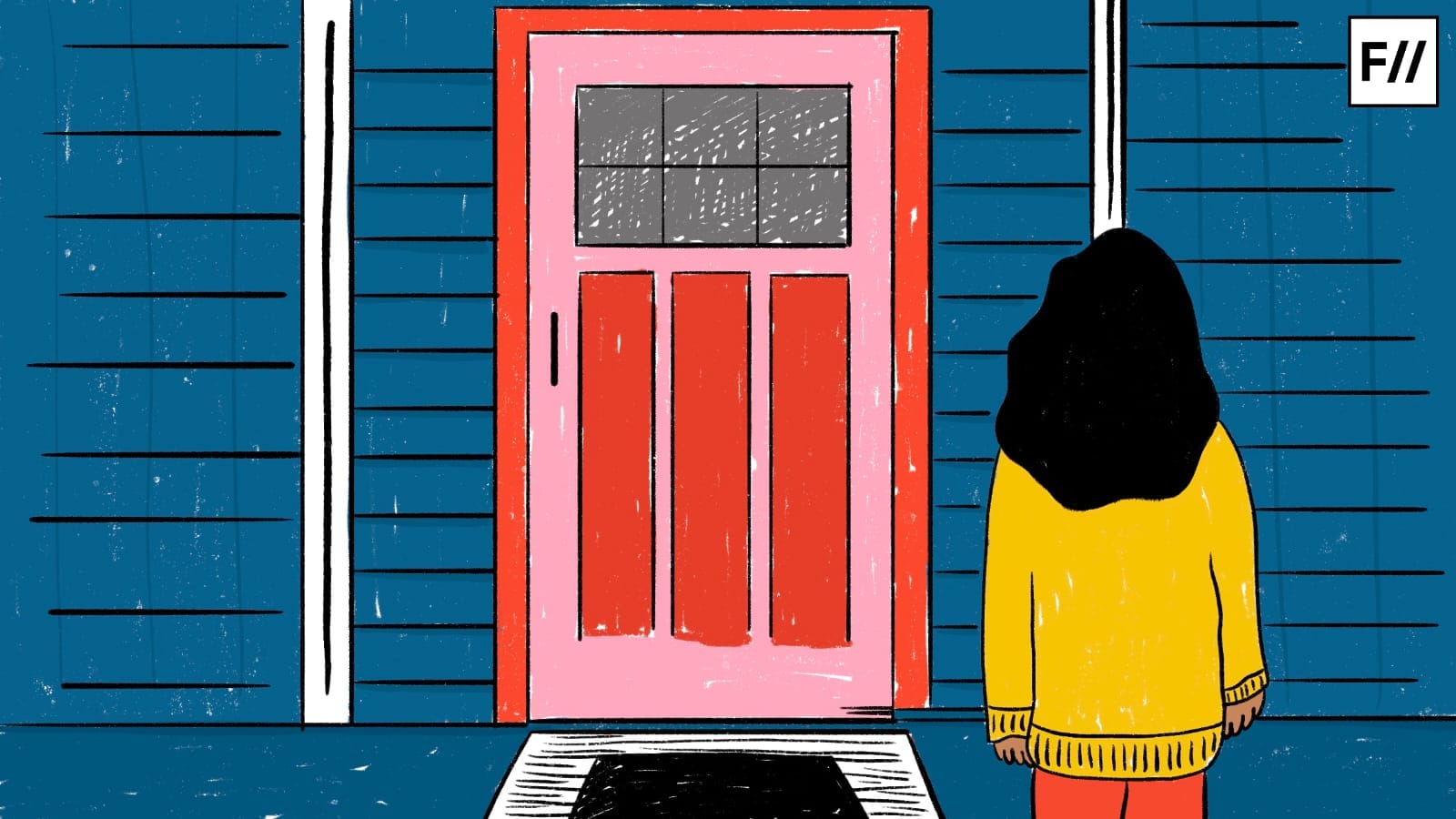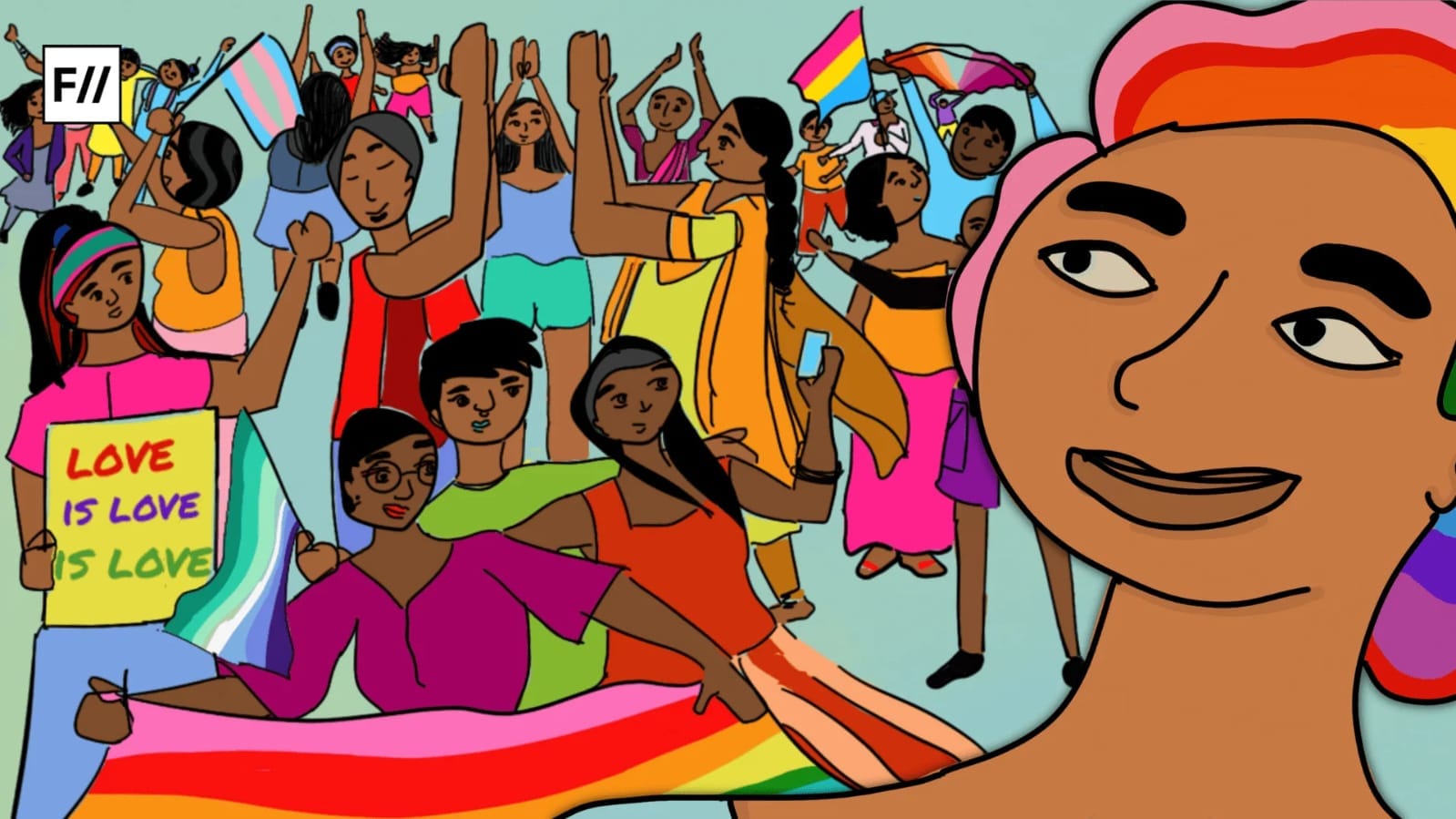Many Indians, including myself, have battled to accept their asexuality as a result of growing up in a society that sees sexual abstinence as a sign of purity while, ironically, demeaning individuals who reject intimate relationships. People think that the asexual community is anti-sex because they lack sexual attraction to others. This results in the community feeling alienated from society and compelled to be hidden inside the closet.
Sex is one of the most talked-about topics among teenagers and adults alike, and it is portrayed in art, books and films with great enthusiasm. And if anyone in that group is averse to talking about sex or uncomfortable doing so, they will be called names, subjected to questions and made to feel like the “odd ones out.”
Alas, when it comes to asexuality, people are immensely unaware of how many variants it has. An asexual person can either be sex-positive, sex-neutral or sex-repelled depending on their feelings towards sex.
Some aromantic people date, some asexual people engage in sexual activity, and many of them wear labels like bi, pan, gay, or straight due to the attraction they experience.
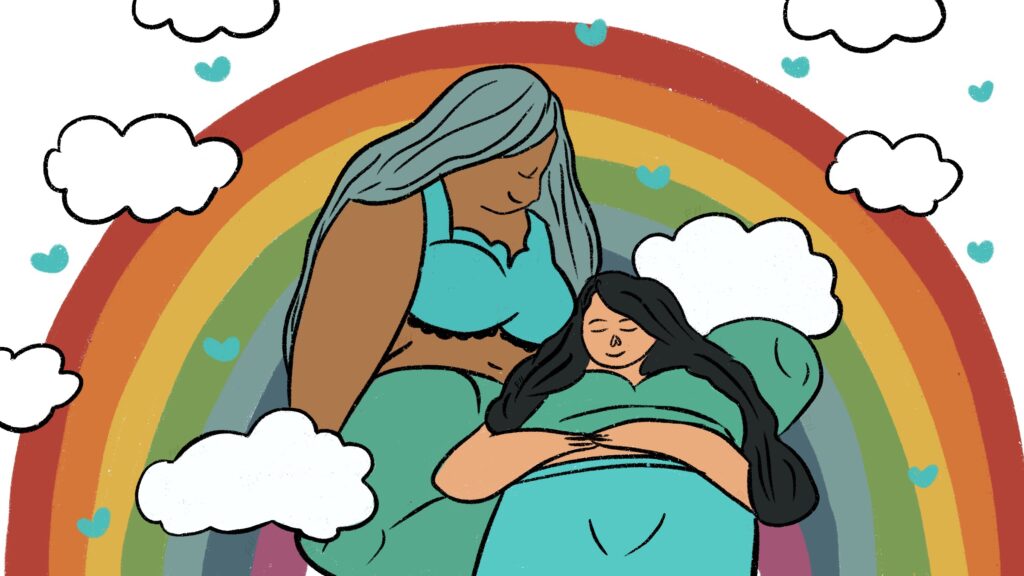
A sex-positive person would be comfortable with having sex and would even enjoy it. The opposite would be true for someone who dislikes having sex. A person who is sex neutral has no strong feelings about having sex. It doesn’t matter if you do it or not.
There is a huge difference between a person’s sexual orientation and their feelings towards sex. I am an asexual person who’s sex-positive but I just don’t have an interest in doing it.
Discovery of myself
Asexuality is an umbrella term that encompasses a wide range of identities that differ in terms of their sexual orientation. It is beyond any intrinsic sexual impulses. There are a wide variety of personal fluctuations, flexibilities, and variances. In other words, asexuality is unique to each person who identifies as such.
It was during my undergraduate years, that I came across the term ‘asexuality,’ and suddenly all my past experiences with love could be described with just one word.
Please note that my experience of identifying as an asexual is unique and that other people may experience or identify asexuality in different ways.
Struggling with my emotions, I was compelled to remain in the closet until lately, when, thanks to the support of my loved ones, I finally accepted my identity as an asexual person with greater assurance and fervour than before.
I dived deep into exploring my sexual orientation and wasn’t confident enough to give myself a label, a name and an identity. I am a hopeless romantic who dreams of a life like a Disney film. I looked forward to falling in love, having someone to talk to after a long day, reading together and having someone to serve as the hearth to which I can cling when life gets chilly. I was concerned that if I declare that I am asexual, people would just not understand me and in the worst-case scenario they’d leave me.
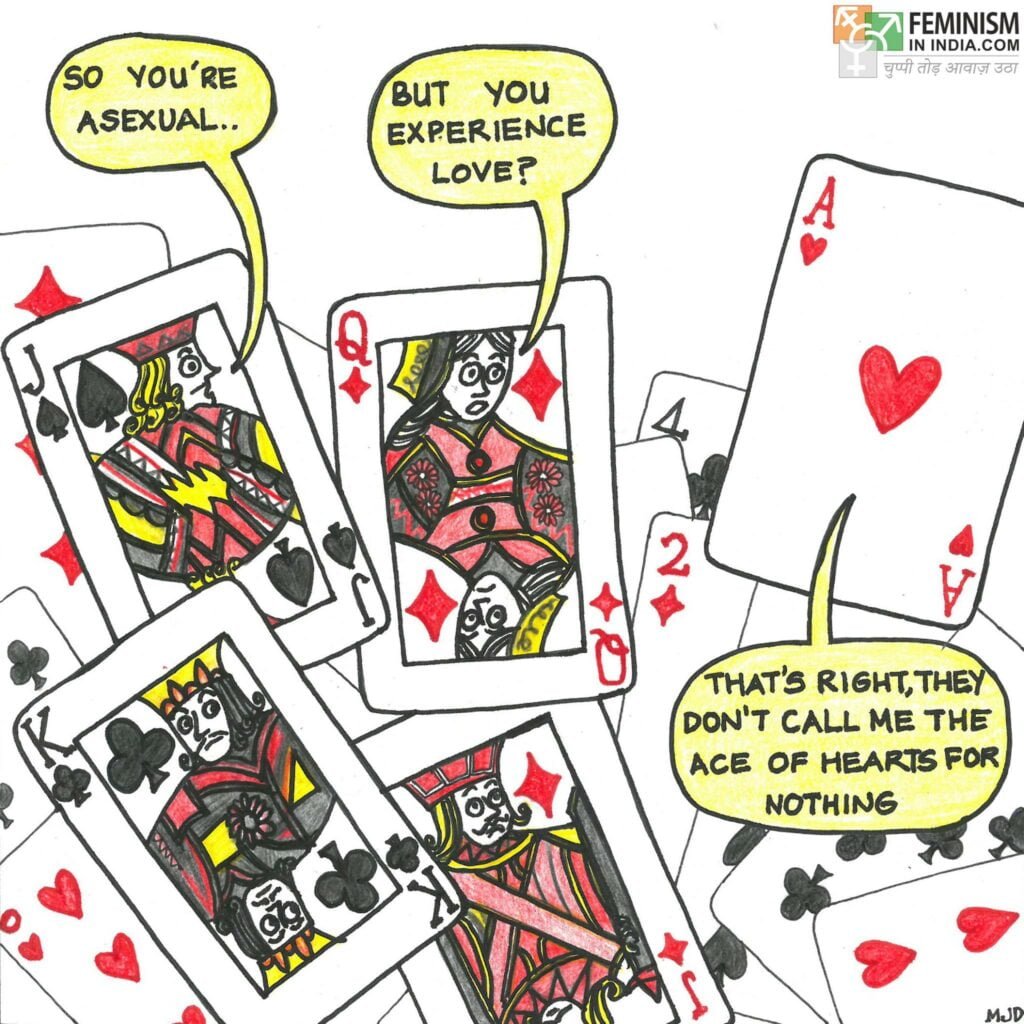
In India, the term “asexual,” is still frequently used to refer to something that doesn’t exist or is regarded as a disease rather than an orientation that people can have. It is frequently compared to celibate behaviours.
Struggling with my emotions, I was compelled to remain in the closet until lately, when, thanks to the support of my loved ones, I finally accepted my identity as an asexual person with greater assurance and fervour than before.
“Honestly, I am not much aware of it but if that’s what you identify with then I am in full support of you,” said one of my best friends when I gathered the courage to come out to her.
“Did something happen to you in your childhood?” is the worst question you can ask someone who belongs to an LGBTQIA+ community. Our sexual orientation is something we are born with and neither it is because of a sexual assault nor it is a disease.
“I may not fully understand asexuality and I am willing to learn more and know you better. In any way, this won’t change a thing between us,” said my partner who respects my boundaries, asks for consent and tries their best to understand it.
However, some people still have a hard time grasping it whenever I confidently say I am an asexual. They are still reluctant to accept that there are different sexual orientations in the world which is just as normal as heterosexuality.
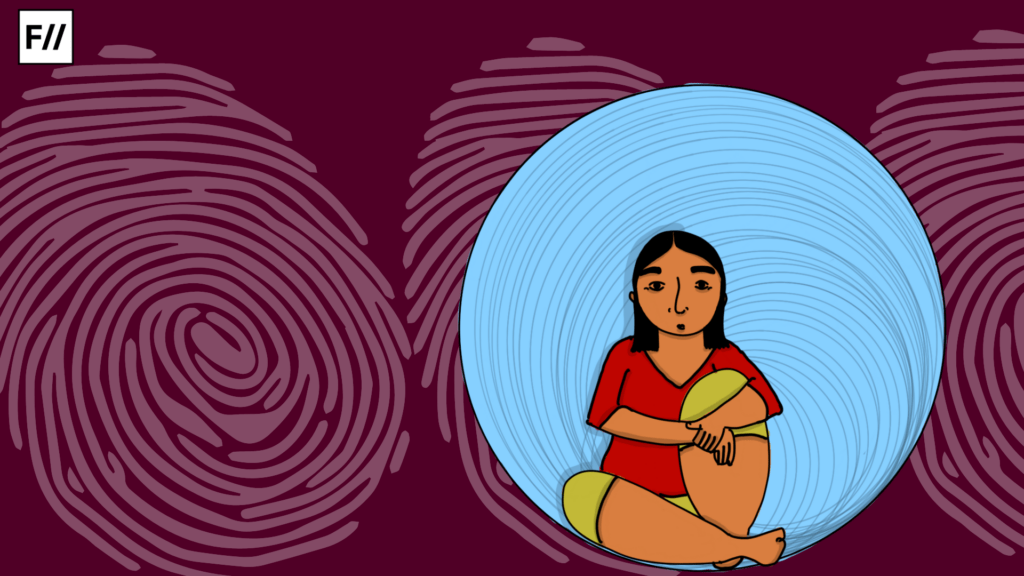
“Did something happen to you in your childhood?” is the worst question you can ask someone who belongs to an LGBTQIA+ community. Our sexual orientation is something we are born with and neither it is because of a sexual assault nor it is a disease.
“It’s just a phase that goes away once you start living with your partner,” said one of my colleagues dismissing the whole community of asexual people. High time that one must know that it is absolutely “not just a phase.”
Finding ‘the one’ can change you
“So, you’re saying you are not interested in sex AT ALL?” said one of my acquaintances.
I nodded.
“Maybe you just haven’t met the right person yet!”, she exclaimed confidently.
People tend to think that to understand their sexual needs, asexual people only need to meet the “right person.” This is the most common myth regarding asexuality that one can develop a sexual interest when they meet ‘The One.’ This is untrue as well and varies greatly among people.
Paris Hilton spoke candidly in an interview with Harper’s Bazaar about her life as America’s loveliest lady. Even though she loved to share a kiss she had never felt sexual desire, leading her to wonder in her early 20s if she was asexual. The 42-year-old stated, “I was recognised as a sex symbol, yet anything sexual terrified me.”
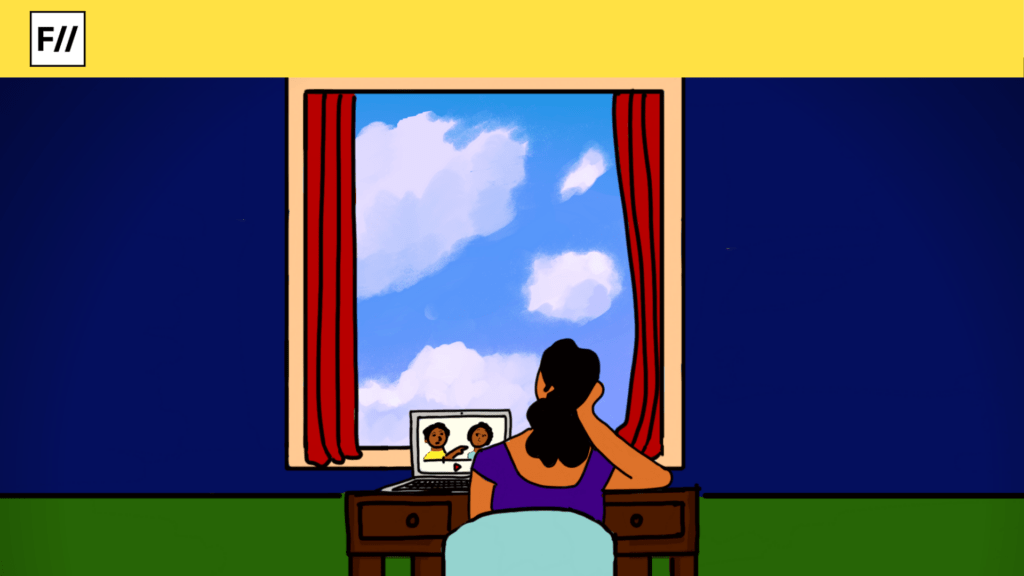
She did not truly feel at ease or realise what she need from her partner until she met her husband, Carter Reum. She said, “I feel so proud of the woman I’ve become because for so long I kept all of that with me.” Like said before, there are a wide variety of personal fluctuations, flexibilities, and variances. Asexuality is unique to each person who identifies as such.
Growing up, I was taught that heterosexual, romantic relationships were all about finding the ‘right person,’ and expressing your love for them through sex. Being sexually attracted to someone is just not a need for engaging in sex with them, which is one of the main characteristics of asexuality. Meeting ‘The One,’ cannot change an asexual person overnight into someone who enjoys sex.
An ode to aces
The poem Confessions of an Asexual Romantic, spoken by Sriti Jha at Spoken Fest in Mumbai, discussed asexuality and all the challenges one has to deal with as a result.
She said, “You can feel all the butterflies and your heart skip a beat for someone and yet not want to do it.” “Does that make your love any less? Does that make you incomplete?”
Sriti stated that the poem gave her comfort because she had experienced a time when she felt unheard and under pressure to fit in with the “cool,” clique.
“I kept falling in love, sometimes better other times worse.
But ‘it’ was never on my mind.
And that seemed to be my curse. So I kept avoiding it.
Eventually, I did it but it didn’t seem meant to be.
Every time it happened I knew I wasn’t being me.
I was relieved when they wrote chants of no means no.
But when I said no and I meant no
They said, “You’ve got to try a little more,”
“I am asexual, I’m not the only one,” she concluded her poem by singing and the audience enthusiastically cheered.
I could relate to every line of the poem and felt the poem deep in my heart. At this point in my life, I feel like I could live without having sex for the rest of my life and be perfectly content with it.
The societal standard of living life
The pressure to kiss someone or lose your virginity at a specific point in your life is very strong in today’s society. In Loveless by Alice Oseman, a girl named Georgia experiences feelings of detachment since she does not share her friends’ sexual or romantic desires. She is under social pressure to participate in these activities even though she is unprepared or has no interest in doing so. There was a compulsion to be like her charming, feisty roommate Rooney at the university.
But when Georgia learns about asexuality and accepts the possibility that she might be an asexual, she starts to feel more like an outsider than a member of the LGBTQ+ community.
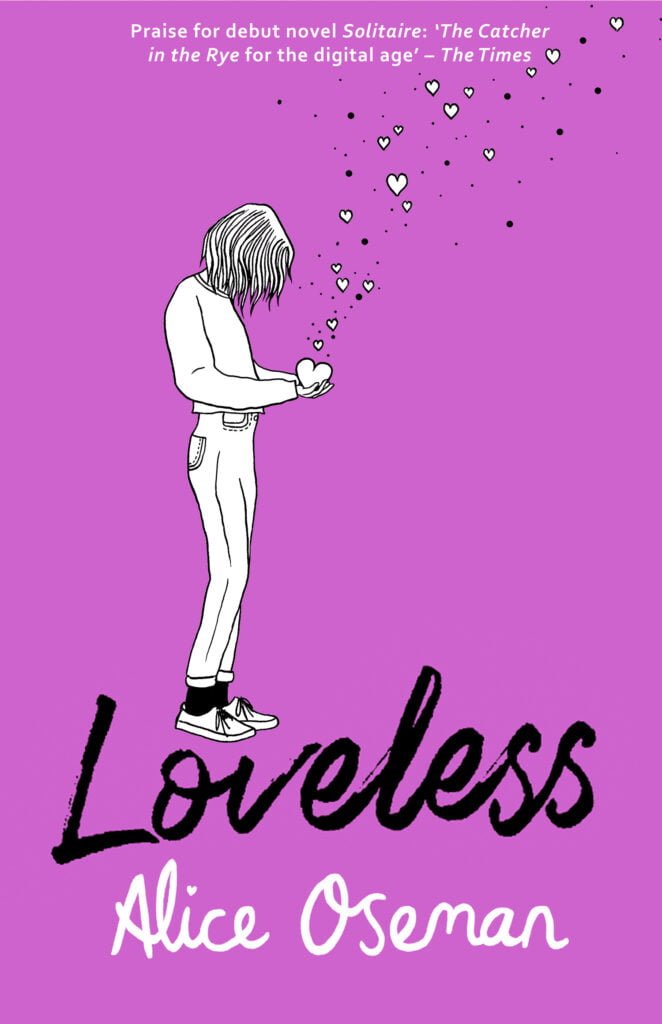
Georgia’s identity troubles worsen by this, but it also forces her outside of her comfort zone, where she discovers herself, makes lifelong friends, and experiences life. A book like Loveless accepts readers who identify with Georgia or have difficulty managing their own identities and normalises asexuality.
Asexuality is a group within the LGBTQ+ community that does not receive enough attention, making Loveless a significant book as it perfectly captures the realities of community acceptance and self-discovery.
Understanding the misunderstood
Asexuality is often associated with childhood and innocence and most of them believe that after the age of 18, one can no longer be asexual. This proves how firm and ignorant they are of not accepting asexuality as a legitimate identity. In this country, being asexual continues to be disregarded. The majority either don’t comprehend the idea at all or don’t want to.
To explore the less-discussed subject, actress Meera Chopra posted on Instagram that reads “Sex shouldn’t be a compulsion, it should be a choice! Having no interest in sex shouldn’t be a taboo, it’s just a healthy sexual orientation.”
Lack of knowledge causes many of us to perish, suffer pain, and live in hostile environments. It took me quite some time to realise that my feeling had a name and was common. In India, there is still a long way to go before asexuality is understood and accepted because LGBTQIA+ people are portrayed in media in a stereotyped and prejudiced way.
She continued, “…Acceptance has increased but there is still a lot of resistance, and I am talking about highly educated people who are still homophobic but yes, definitely from the time we were born and we started in college to now, there is a huge amount of acceptance.”
Lack of knowledge causes many of us to perish, suffer pain, and live in hostile environments. It took me quite some time to realise that my feeling had a name and was common. In India, there is still a long way to go before asexuality is understood and accepted because LGBTQIA+ people are portrayed in media in a stereotyped and prejudiced way.
